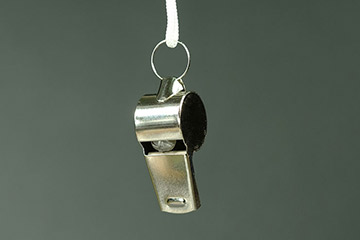GPS used to monitor an employee
08 August 2013
By judgment of 5 July 2013, the Danish Industrial Court found that use of information from a GPS in a company car was contrary to an agreement on control measures.
The question in the case was whether an employer, by using information from a GPS to monitor an individual employee's effective working time, had violated the agreement on control measures which was entered into between the Danish Federation of Trade Unions, LO, and the Danish Employers' Confederation, DA.
The case began in 2011 when an electrician was called in for an official meeting with a manager and a sales manager. At the meeting, he was presented with a report on data obtained from the GPS system in the company car. As the electrician could not give a detailed account of the time spent, he received an official warning. LO was of the opinion that the employer had violated the agreement on control measures in that the monitoring of the electrician's working time was implemented before the expiry of the stipulated time limit of 6 weeks.
The Industrial Court found that such use of the GPS information resembled a control measure. The Industrial Court stated that the agreement on control measures prescribes that the employer must "notify the employees of new control measures no later than six weeks prior to their implementation".
Thereafter, the Industrial Court stated that the provision was to be interpreted to the effect that what is important for the commencement of the duty of notification is the time at which the GPS is being put into use for monitoring the employees. In this connection, the Industrial Court emphasised that the notification should specifically state that the GPS would be used for monitoring the employees' working time.
The Industrial Court took into account that the employer only a few weeks after the collection of data from the relevant employee's GPS in a sufficiently clear and obvious manner had notified the employees that the GPS information would also be used to monitor the employees' effective working time.
Consequently, the Industrial Court imposed a fine on the employer. However, the fine was only fixed at DKK 10,000 as the violation was found to be of minor gravity. The Industrial Court attached importance to, inter alia, that the monitoring of the individual employee - whom the employer suspected was not fulfilling his work obligations - was not particularly intrusive.
The judgment shows that an employer who is subject to the agreement on control measures must notify the employees of any control measures at least six weeks prior to their implementation and that the notification should specifically state what the employer intends to control.
The case began in 2011 when an electrician was called in for an official meeting with a manager and a sales manager. At the meeting, he was presented with a report on data obtained from the GPS system in the company car. As the electrician could not give a detailed account of the time spent, he received an official warning. LO was of the opinion that the employer had violated the agreement on control measures in that the monitoring of the electrician's working time was implemented before the expiry of the stipulated time limit of 6 weeks.
The Industrial Court found that such use of the GPS information resembled a control measure. The Industrial Court stated that the agreement on control measures prescribes that the employer must "notify the employees of new control measures no later than six weeks prior to their implementation".
Thereafter, the Industrial Court stated that the provision was to be interpreted to the effect that what is important for the commencement of the duty of notification is the time at which the GPS is being put into use for monitoring the employees. In this connection, the Industrial Court emphasised that the notification should specifically state that the GPS would be used for monitoring the employees' working time.
The Industrial Court took into account that the employer only a few weeks after the collection of data from the relevant employee's GPS in a sufficiently clear and obvious manner had notified the employees that the GPS information would also be used to monitor the employees' effective working time.
Consequently, the Industrial Court imposed a fine on the employer. However, the fine was only fixed at DKK 10,000 as the violation was found to be of minor gravity. The Industrial Court attached importance to, inter alia, that the monitoring of the individual employee - whom the employer suspected was not fulfilling his work obligations - was not particularly intrusive.
The judgment shows that an employer who is subject to the agreement on control measures must notify the employees of any control measures at least six weeks prior to their implementation and that the notification should specifically state what the employer intends to control.






